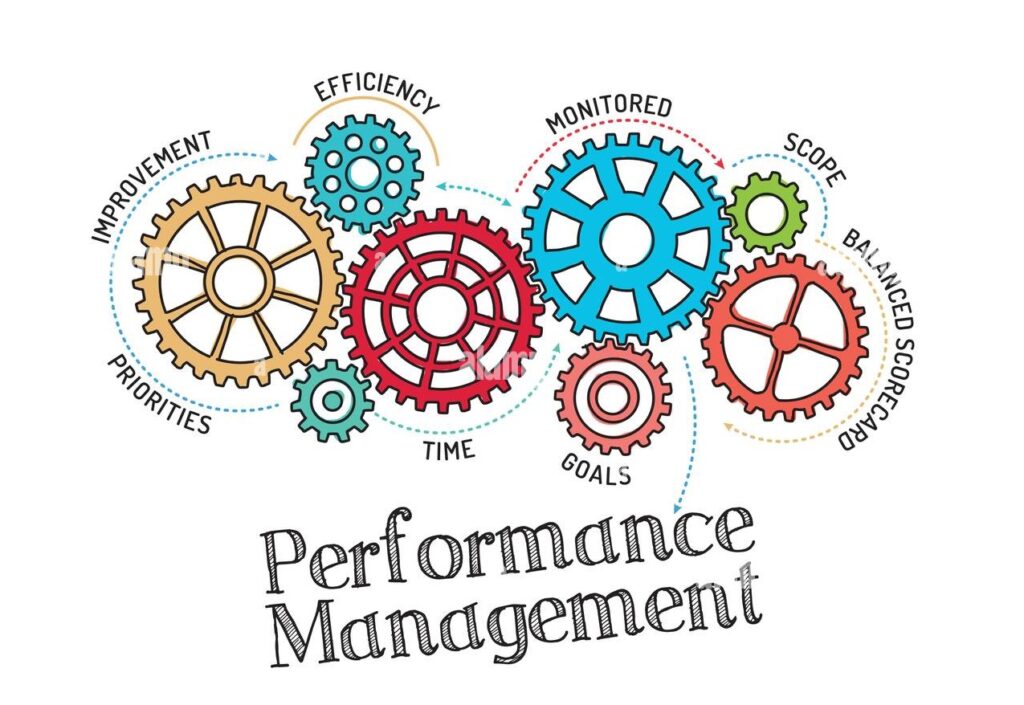In the dynamic landscape of modern business, the quest for optimal performance has become a cornerstone of organizational success. With the evolution of industries and the diversification of work environments, the art of performance management has risen to the forefront as a pivotal tool for driving productivity, engagement, and growth within companies.
Performance management encompasses a set of processes aimed at aligning individual goals with organizational objectives, assessing and enhancing employee performance, and fostering continuous improvement. It’s a multifaceted approach that involves not only evaluating past performance but also setting future goals and providing support to help individuals and teams reach their full potential.

Understanding the Essence of Performance Management
At its core, effective performance management is a collaborative effort between employees and management. It involves clear communication, goal setting, regular feedback, and development planning. This structured approach enables employees to understand their roles and responsibilities while giving them a roadmap for growth within the company.
Key Components of Successful Performance Management
- Goal Setting: Clear, specific, and achievable goals form the foundation of effective performance management. When employees have well-defined objectives aligned with organizational aims, it becomes easier to measure progress and success.
- Continuous Feedback: Frequent and constructive feedback is vital for guiding employees and addressing any performance gaps. It’s not just about annual reviews but a continuous dialogue that helps in course correction and improvement.
- Development Planning: Providing resources, training, and opportunities for skill enhancement is crucial. Investing in employee development not only improves performance but also boosts morale and engagement.
- Performance Appraisals: Regular assessments provide a structured way to evaluate progress against set goals. This step helps in recognizing achievements, identifying areas for improvement, and making necessary adjustments.
Implementing Effective Performance Management Strategies
- Clear Communication: Establishing open channels of communication ensures that expectations are understood clearly. Managers should communicate goals, expectations, and feedback transparently.
- Training and Development: Invest in resources and programs that support skill development and career advancement. This not only benefits employees but also contributes to the company’s growth.
- Technology Integration: Utilize performance management tools and software to streamline processes, track progress, and facilitate regular feedback.
- Employee Involvement: Involve employees in goal-setting and performance discussions. Encourage them to take ownership of their development and career progression.
The Benefits of Effective Performance Management
Implementing robust performance management practices yields numerous benefits:
- Enhanced Productivity: Clear goals and feedback mechanisms drive productivity by keeping employees focused and motivated.
- Increased Employee Engagement: When employees feel valued and supported, their engagement and commitment to their work and the organization improve.
- Talent Retention: Providing growth opportunities and recognizing achievements fosters loyalty and reduces turnover.
- Organizational Alignment: Aligning individual goals with company objectives ensures everyone works towards the same overarching goals.
In today’s competitive business landscape, effective performance management is not just a beneficial tool but a necessity. By fostering a culture of continuous improvement, setting clear goals, providing regular feedback, and investing in employee development, organizations can not only enhance individual performance but also drive overall success. Embracing these strategies not only benefits employees but propels businesses towards sustainable growth and success in the long run.
Recognition and Rewards
Acknowledging and rewarding exceptional performance is a powerful motivator. It reinforces positive behavior and encourages employees to strive for excellence. Recognition doesn’t always have to be monetary; it can include public appreciation, awards, or additional responsibilities that showcase trust and appreciation for an employee’s contributions.

Adaptability and Flexibility
In today’s dynamic work environment, adaptability is key. Performance management strategies should be flexible enough to accommodate changes in goals, priorities, and work methodologies. Embracing flexibility allows for adjustments in objectives, feedback mechanisms, and development plans, ensuring they stay relevant and aligned with evolving organizational needs.
Incorporating Recognition Programs
Establishing structured recognition programs can further bolster performance management efforts. These could include Employee of the Month awards, peer recognition platforms, or milestone celebrations. These programs foster a positive work culture and motivate employees to consistently deliver their best.
Embracing Diversity and Inclusion
Performance management strategies should be inclusive, considering diverse perspectives and individual strengths. Acknowledging and leveraging these differences can lead to innovative solutions and a more cohesive team dynamic. It’s essential to ensure fairness and equity in evaluations and opportunities for growth.
By integrating recognition programs, fostering adaptability, and embracing diversity and inclusion, organizations can enrich their performance management strategies, fostering an environment where employees feel valued, empowered, and motivated to contribute their best to the company’s success.
In today’s competitive business landscape, effective performance management is not just a beneficial tool but a necessity. By fostering a culture of continuous improvement, setting clear goals, providing regular feedback, and investing in employee development, organizations can not only enhance individual performance but also drive overall success. Embracing these strategies not only benefits employees but propels businesses towards sustainable growth and success in the long run.


